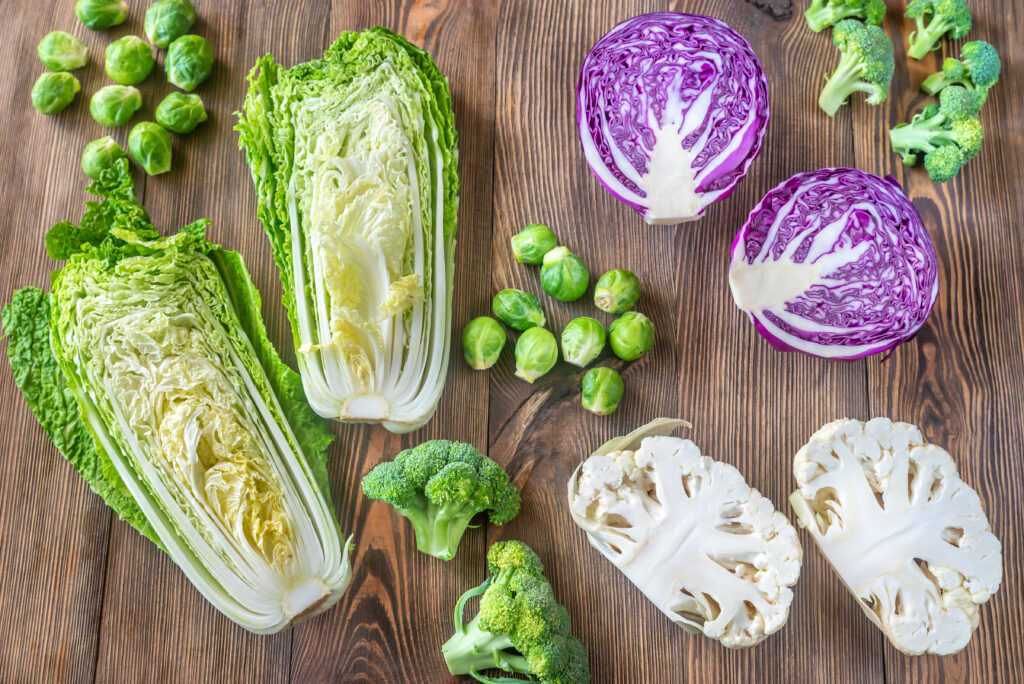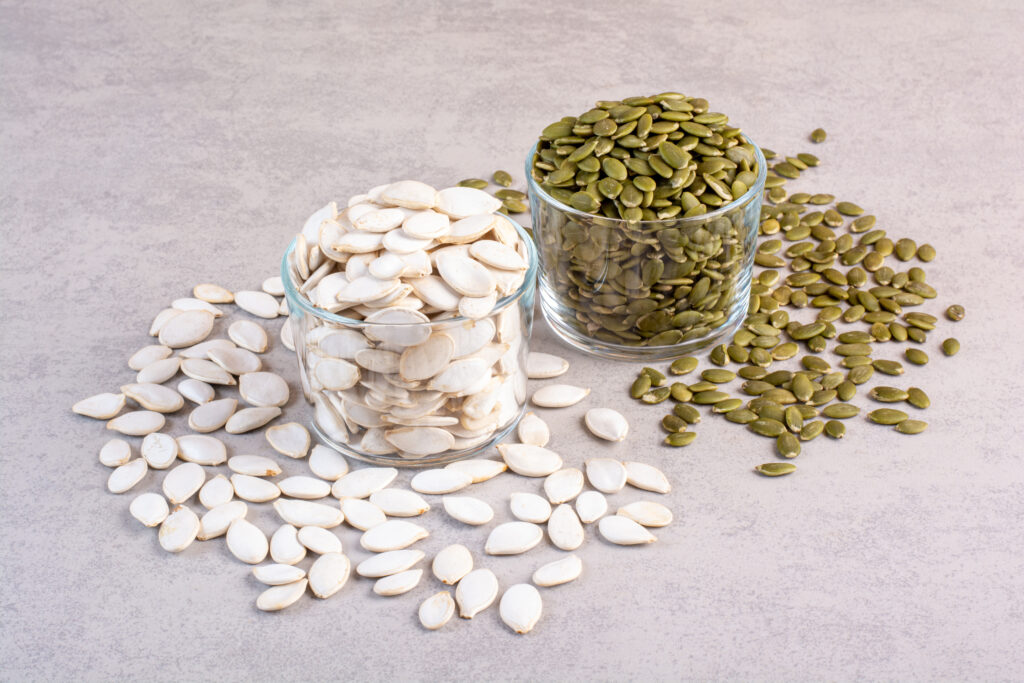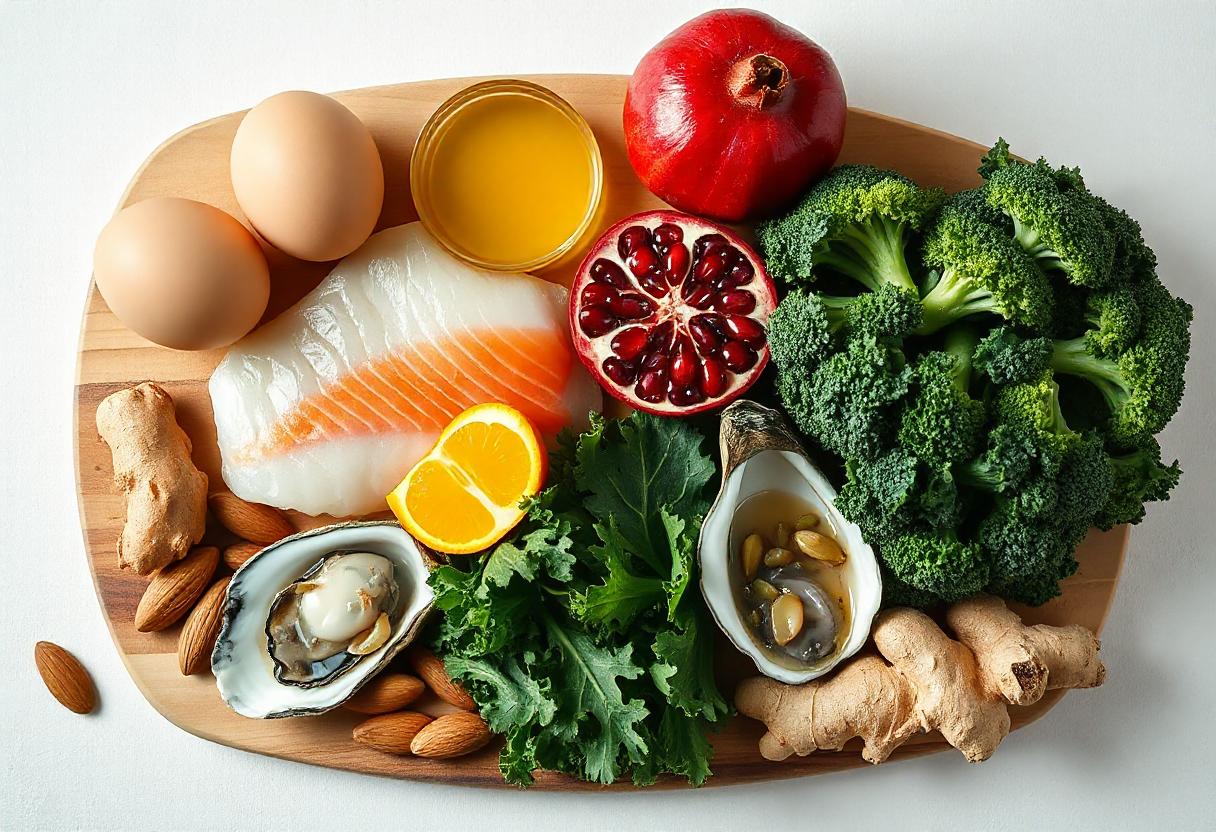Testosterone is a crucial hormone primarily produced in the testes in men and in smaller amounts in women’s ovaries and adrenal glands.
It plays a vital role in developing male reproductive tissues, such as the testes and prostate, and promoting secondary sexual characteristics like increased muscle and bone mass and body hair growth.
Testosterone is also essential for overall health, contributing to libido, mood regulation, and energy levels.
Testosterone levels naturally decline with age, and maintaining balanced testosterone is important for health and well-being.
A healthy lifestyle, including diet and exercise, can help support optimal testosterone levels.
Several studies have demonstrated that a low energy availability can decrease Luteinizing Hormone concentrations, subsequently affecting testosterone synthesis.
A significant decrease in testosterone concentrations were observed when dietary macronutrient intake was reduced.
Another observation was that there was a significant decrease in circulating testosterone concentrations with 40% reduction in total caloric intake, despite a high percentage of the caloric intake being from protein sources, which emphasize the importance of diet for healthy testosterone levels.
This post will discuss about the foods that increase testosterone levels naturally, discussing about other factors that may cause lower testosterone levels.
Foods that Boost Testosterone
Below are the foods that may help increase testosterone levels naturally.
Fatty fish like salmon, mackerel, and sardines are rich in omega-3 fatty acids, vitamin D, and protein, all of which support testosterone production.
2. Eggs
Eggs play a crucial role in testosterone production due to their high content of cholesterol, selenium and vitamin D.
Contrary to its negative reputation, cholesterol is a precursor for testosterone synthesis, and eggs provide a natural source of this vital nutrient.
Eggs, particularly the yolks, are also an excellent source of vitamin D, which is linked to increased testosterone production.
Additionally, eggs are also a great source of selenium, with one large egg (50 grams) containing 15.4 mcg, which is 28% of the daily recommended value.
Selenium may support healthy testosterone levels through its antioxidative properties and various biological mechanisms.
Several studies conducted on both humans and animals have shown that individuals with sufficient selenium levels in their bloodstream tend to have elevated testosterone levels.
Eggs are nutritious, but moderation is key — too much cholesterol may affect heart health. That said, if you don’t have any related issues, even eating up to three a day is generally considered safe.
Incorporating eggs sensibly into a balanced diet can contribute positively to testosterone production and overall well-being.
3. Cruciferous Vegetables

Cruciferous vegetables such as broccoli, Brussels sprouts, and kale are rich in a compound called indole-3-carbinol.
This compound helps balance estrogen levels in the body, which may indirectly support higher testosterone levels.
A supplement containing indole-3-carbinole extract from cruciferous vegetables, chrysin, saw palmetto, and Tribulus terrestris, when taken with the pro-hormones was found to boost free testosterone levels more effectively in middle-aged men than pro-hormones alone.
Pro-hormones are precursor substances that the body can convert into active hormones, like testosterone.
Include cruciferous vegetables like broccoli, kale, and cauliflower by adding them to salads, stir-fries, smoothies, or roasting them as side dishes for meals.
4. Shellfish
Shellfish, including oysters and clams, are rich in zinc, which is crucial for testosterone production.
Zinc is crucial for testosterone synthesis. A deficiency in zinc can lead to hypogonadism, a condition characterized by low testosterone levels.
Shellfish—especially oysters—are among the richest sources of zinc. While levels vary by type, cooked Eastern oysters top the list, delivering around 87 mg per 100 grams—an incredible 790% of the daily value.
Several studies have shown that zinc supplementation can restore testosterone concentrations to their normal physiological range.
Although, zinc is crucial for regulating testosterone production, there haven’t been long-term studies on its effects in competitive athletes. And it’s still unclear whether zinc supplementation works only when zinc levels are low or if it can boost testosterone even when levels are normal.
5. Pomegranates
Pomegranates are rich in antioxidants that can reduce oxidative stress, which may be beneficial for testosterone production.
Supplementation of pomegranate juice significantly increased testosterone levels and other reproductive hormones in rats, which were decreased by CCl4 injections. It also enhanced antioxidant enzyme activity while reducing oxidative stress. Furthermore, pomegranate juice helped restore Leydig cells (which produce testosterone) that were damaged by CCl4.
In a study, nine athletics were divided into two groups: placebo and pomegranate juice, before Olympic-weightlifting sessions. Both groups showed reduced cortisol and increased testosterone-to-cortisol ratios, but the pomegranate juice group had lower testosterone levels during recovery compared to the placebo.
While the results are promising, further research on humans is needed, especially in non-athletic populations.
6. Nuts and Seeds
Nuts and seeds are rich sources of nutrients crucial for testosterone production. They contain healthy fats, such as monounsaturated and polyunsaturated fats, which support hormone synthesis and overall health.
Additionally, nuts and seeds provide essential minerals like zinc and magnesium, which are vital for testosterone production.
Furthermore, these foods offer protein, fiber, and antioxidants that may help regulate hormone levels and reduce oxidative stress.
Pumpkin seeds are one of the richest sources of magnesium. Just one ounce (28.35 grams) provides 168 mg, which is 40% of the daily value.

Sex Hormone-Binding Globulin (SHBG) is a protein that binds to sex hormones, regulating their bioavailability and activity in the body. Magnesium binds to SHBG, blocking testosterone from binding and enhancing its bioavailability.
A deficiency in magnesium increases testosterone binding to SHBG, reducing its bioavailability.
Magnesium deficiency is also linked to increased oxidative stress and inflammation, both of which can negatively impact testosterone levels. Interestingly, restoring magnesium has been shown to boost antioxidant levels and reduce inflammation, which may potentially help increase testosterone levels.
However, the effectiveness of magnesium supplementation in boosting testosterone synthesis as an anabolic agent remains unclear.
Additionally, nuts—particularly almonds, walnuts, and hazelnuts—are a great source of boron, which has been shown to increase testosterone levels through a mechanism similar to that of magnesium. However, further research is needed.
Additionally, nuts, particularly almonds, walnuts and hazelnuts are a great source of boron, which has been shown to increase testosterone levels through a similar mechanism as magnesium. However, further research is needed.
Including a variety of nuts like almonds, walnuts, and seeds such as flaxseeds, chia seeds and pumpkin seeds in the diet can contribute to maintaining optimal testosterone levels and supporting overall well-being in men.
7. Onions
Onions are a good source of antioxidants, which may potentially boost testosterone levels.
Animal studies suggest that onions can increase testosterone levels due to their high quercetin content, a potent antioxidant.
In a study with healthy men, consuming onion extracts containing 30 mg of concentrated cysteine sulfoxides daily for 14 days showed a positive effect on testosterone levels. This suggests that onion extracts may enhance hormonal balance and support testosterone production naturally.
However, further research, primarily through clinical trials is needed.
8. Olive Oil
Extra virgin olive oil is a staple of the Mediterranean diet and is known for its health benefits, including boosting testosterone levels, because of its rich content of monounsaturated fatty acids, which is 75% by volume.
Consumption of MUFA (Monounsaturated Fatty Acids) has been shown to boost testosterone levels when 25 g of butter is replaced with olive or argan oil. But on the contrary, consuming 55 g of MUFA from extra virgin olive oil has led to a temporary post-meal drop in testosterone.
This highlights the need of well-designed, large-scale studies that control participants’ diets to better understand how dietary fatty acids affect testosterone levels.
9. Ginger
Ginger is a powerful root with numerous health benefits, including supporting testosterone production.
Gingerol, a phenolic phytochemical compound found in fresh ginger may to boost testosterone in men.
Several animal studies done on diabetic rats found that ginger enhances testosterone production by increasing the level of cholesterol in testes, reducing oxidative stress and lipid peroxidation in the testes, enhancing the antioxidant activity, normalizing blood glucose, enhancing nitric oxide production etc,.
However, there are no studies on humans suggesting the effects of ginger on testosterone production.
10. Herbs
Herbs such as ashwagandha, tribulus terrestris, maca, and fenugreek have been studied for their potential impact on testosterone production. Here is an analysis of human and animal studies examining the effects of these herbs on testosterone levels after supplementation:
- Ashwagandha has been found to increase testosterone and other reproductive hormones in subfertile men, but only when compared to baseline measurements, not against a placebo.
- Fenugreek has also shown an increase in testosterone, but similarly, only when compared to baseline, not placebo.
- In contrast, tribulus terrestris and maca have shown no significant improvement in testosterone levels following supplementation.
However, the long-term effects and potential consequences of using these herbs remain unclear, emphasizing the need for further research.
It is important to consult with a healthcare professional or certified Ayurvedic practitioner before adding these herbs to your routine, as they may have potential side effects.
Lifestyle Factors That Affect Testosterone Levels
In addition to dietary changes, certain lifestyle factors can also influence testosterone levels.
- Regular Exercise: Both resistance training and high-intensity interval training (HIIT) have been shown to boost testosterone levels.
- Adequate Sleep: Poor sleep quality and duration can significantly lower testosterone levels. Aim for 7-8 hours of quality sleep per night.
- Stress Management: Chronic stress elevates cortisol levels, which can inhibit testosterone production. Practices such as meditation, deep breathing, and yoga can help manage stress.
The Bottom Line
It is crucial to maintain adequate testosterone levels to maintain a healthy life. You can improve optimal testosterone production naturally by including foods that increase testosterone.
Those nutrient-rich foods include lean protein, healthy fats, cruciferous vegetables, foods rich in zinc, vitamin D, magnesium, antioxidants and herbs like ginger and garlic.
Along with these dietary, regular exercise, stress management and adequate sleep can support healthy testosterone levels and a healthy life.
Although nutrients like healthy fats, zinc, vitamin D, selenium and magnesium play crucial role in the synthesis of testosterone, there are limited human studies on some specific foods and nutrients for their testosterone-boosting abilities.
However, if you have lower testosterone levels or if you suspect lower testosterone levels, it’s essential to consult a healthcare provider for proper diagnosis and guidance. They can diagnose and recommend treatments or lifestyle changes based on hormone tests.
